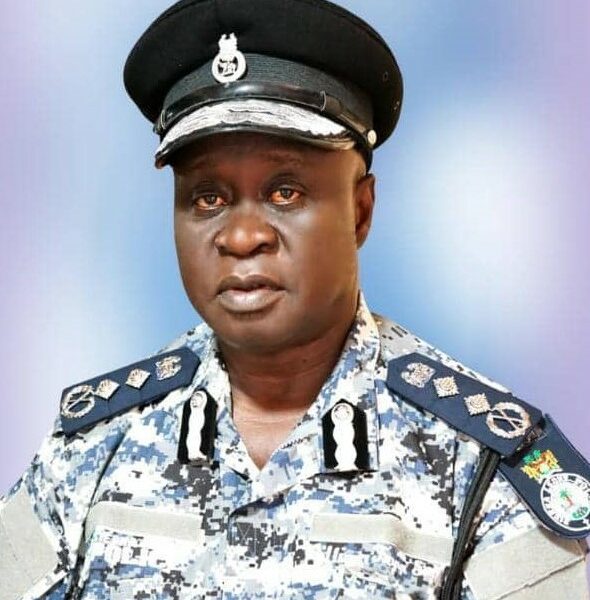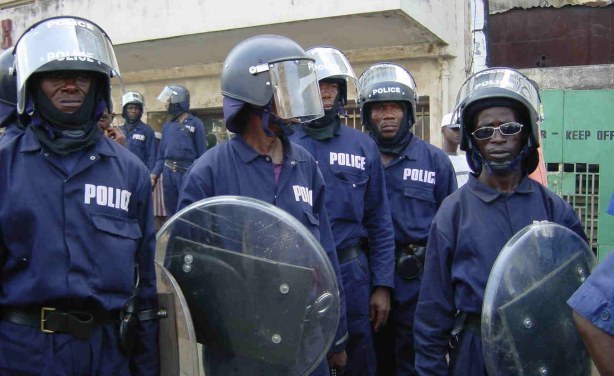Corruption is tradition in the Sierra Leone Police
A recently launched coalition report led by the Institute of Governance Reform (IGR) has established that at least Le81 billion worth of illicit payments were made to traffic officials in the last one year by nearly 60% of traffic offences. The report, ‘Critical Perspective of Governance’ Volume 6 titled: ‘Corruption stops with us ending bribery for traffic offences in Sierra Leone,’ also states that ‘Government lost an estimated Le700 billion (32% of revenue) from licences fees and potential fines for traffic offences that are not paid to authorized revenue collection agencies.’
According to the Executive Director of IGR, Andrew Lavali, the research surveyed the experiences of five hundred motorists and selected few enforcement agents and also looked at drivers’ experiences with the police, particularly whether they paid bribes, how much they paid, why they were pulled over, their knowledge of what to do when pulled over as well as suggestions for better police-motorist relations.
The methodology used by IGR as explained by its Executive Director lends credence to that report. What the report unearthed will not surprise most Sierra Leoneans, especially drivers, passengers and in lookers who often witness what obtains between commercial drivers and traffic officers in terms of traffic offences and bribery.
According to the report, “Nearly three in five drivers said they pay bribes when stopped by the police.” This again can be testified by the general public, particularly passengers who often witness the scenes of police harassment of drivers that commit traffic offences. Drivers would prefer to bribe the police so that they would not be charged to court where they would levy heavy fines on them. Only drivers that refuse to bribe the police for traffic offences will be dragged to court except the vehicle owners are authorities or affluent people in society. For example, I have never witnessed or seen drivers of commercial vehicles owned by police officers been arrested or charged to court for traffic offences. And there are hundreds of police officers, including traffic officers that own commercial vehicles and I stand to be corrected.
Bribery for traffic offences in Sierra Leone, as rightly observed by the Executive Director of Centre for Accountability and Rule of Law (CARL) during the launch of the report, has a domino effect and it is the poor and ordinary people who are bearing the brunt because eventually, taxi and Poda-Poda drivers will ask passengers to double or triple regulatory or official fares for distances in order to meet the demand of extortions. Most Poda Poda and taxi drivers plying the east end Freetown routes, for instance, have the notoriety for asking vulnerable passengers to double or triple their fares from Calaba Town or Wellington to Eastern Police or Sackville Street. Worst still, Poda Poda drivers from Waterloo always ask passengers in Calaba Town and Wellington to pay the same fare as those from Waterloo which is Le2, 000 instead of the official fare Le1, 000. But all this is happening as a result of the leakages in the traffic sector. By the time the commercial driver from Waterloo gets into Freetown, he would have booked Le5, 000 each at each of the various checkpoints on the highway and the roundabouts at Ferry Junction, Up Gun, Cline Town, Savage Square and East End Police.
The IGR Researcher and Policy Director remarked that “if we refuse to pay bribes corruption will stop.” That could be possible in certain sectors but it is very difficult not to pay bribes in the traffic sector given the number of traffic offences committed by lawless commercial drivers on daily basis. Defaulters would simply pay the traffic officer so that they won’t be taken to court where they would be found guilty and pay heavy fines or even be sent to remand or prison.
What I believe will minimize corruption in the traffic sector is for both the Sierra Leone Police (SLP) and Sierra Leone Road Safety Authority (SLRSA) to set up a special monitoring mechanism for the policing of traffic officers and wardens on the streets and the highways. By so doing, most of them would refrain from taking bribes from commercial drivers and start charging them to court in their numbers for traffic offences. This will enable Government regain the licences fees and potential fines for traffic offences that are going into the coffers of corrupt traffic officers and probably their unscrupulous bosses at the George Street Police Headquarters and SLRSA.
I believe the system of policing the traffic officers and wardens will definitely work in that Sierra Leoneans witnessed it in the tenure of British-born Keith Biddle as Inspector General of the SLP. It is on record that hundreds of traffic officers were dismissed from the police when the CDIID found them guilty of accepting bribes from commercial drivers. The police authorities know the strategy for policing traffic officers but they just can’t implement it because they are benefitting immensely from the corrupt practices of their traffic officers. That makes corruption a tradition in the Sierra Leone Police.
By Thomas Vandi Gbow
Stay with Sierra Express Media, for your trusted place in news!
© 2016, https:. All rights reserved.






